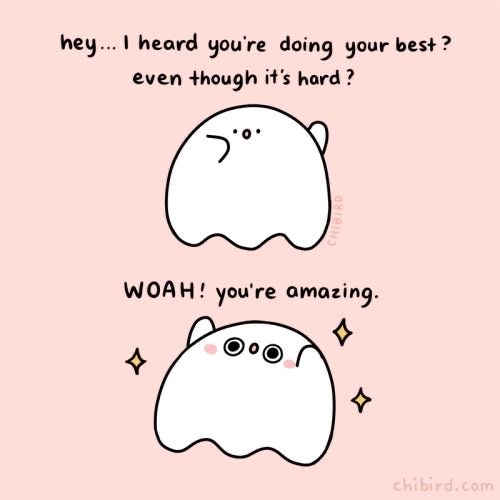#ellie's serotonin levels rise
Note
IM HAVING TO HOLD MYSELF BACK FROM BINGING UR WORK BC ITS SO GOOD!!! I literally told my friend ur my fav blog rn and proceeded to send them one of ur things (they loved it btw!) 💀it's so good dude omfg--- like the way you write is so like peaceful and pleasant to read 💕 please like idk know that ur appreciated and that you do a great fuckimg job and that people (me kts me I'm people) are shaking and foaming at the mouth over ur work. like dude I love it too much. I'm so excited for some pt 2s 😫 and I love so much that you write for the underrated boys (sero toko shoji tetsu) ALSO THE WAY YOU INTERPRET THE CHARACTETS IS SO GOOD AND I AGREE I AGREE IA HEEECNCNCNSKS i love you thanks for existing and making things for me to shit and cry over
SHCLUISCIUBRIYHUSCIYLSUHSIU STOP RIGHT NOW??? I'M SO SORRY I GOT TO THIS SO LATE OHSCLIHSCLIUHSUCHYCRLUIH??? WHAT WHAT WHAT THIS IS LITERALLY THE SWEETEST AND KINDEST ASK EVER MY HEART ISSCILUHSIUCHSUC?????? THIS IS THE HIGHEST COMPLIMENT I HAVE EVER GOTTEN I AM SOBBING THROWING UP SHARTING THIS IS SO SO SWEET THANK YOU SO MUCH??? I WANT TO GIVE YOU ALL THE HUGS AND KISSES W YOUR CONSENT AVAILABLE EVER OH MY GOSH THIS MADE ME SO HAPPY????? THIS COMMENT LITERALLY KEPT ME GOING ALL WEEK THANK YOU SO SO MUCH I HOPE YOU'VE BEEN TAKING CARE OF YOURSELF AND EATING LOVE!!! OML OML STOP THIS IS SO SWEET HELP
#kme: crack-squirrels<3!#ellie loves her moots!#ellie's serotonin levels rise#OHSCHSIUHC#THi#wh#WIUSHIUC#ILY#WHAT.I#HOW#IS ONE PERSON#JUST#SCIUHDLUICRIUCHDILUSHCUFHRCIABKUC
13 notes
·
View notes
Text
4 Ways Lockdown Changed Sleep, for Better and Worse—and What to do Next
The article 4 Ways Lockdown Changed Sleep, for Better and Worse—and What to do Next Find more on: The Elly Mackay Blog
Since the earliest days of the coronavirus, scientists have been furiously at work studying its characteristics, searching for treatments and ultimately a vaccine, and investigating its effects—including on sleep. There’s been research that suggests melatonin might have some protective benefits, helping to mitigate the severity of Covid-19 ( in animal models). Researchers are examining the effects of social isolation, economic upheaval, stress and uncertainty on our nightly rest.
We’re (mostly) on the other side of a months-long lockdown, and scientific research has begun to reveal ways that broad social quarantine has affected our sleep. This won’t be the last we learn about the effects of this unprecedented global upheaval on sleep. But research now begins to point to specific sleep challenges—and some silver linings around sleep in the age of coronavirus.
Here are 4 things we’ve learned so far about what’s happened to our sleep since lockdown, with some advice about how to put this information to work for your sleep, going forward.
Some of us are getting more sleep since lockdown
That’s one of the takeaways from two just-released (and separate) studies, both published in the journal Current Biology. These studies contain several interesting findings which I’ll talk about.
One study by scientists at the University of Boulder analyzed the sleep of a group of 139 university students, comparing data collected about their sleep before lockdown to new data collected after lockdown, when students left campus and classes went virtual. Scientists found a large majority of these young adults sleeping more during lockdown than they had been before. Pre-lockdown, 84% said they were sleeping 7 or more hours a night. During lockdown, that number rose to 92%. Sleep in this group increased an average of 30 minutes during the weeknights, and 25 minutes on weekend nights.
It’s noteworthy that this additional sleep didn’t involve going to bed earlier. The students actually went to bed LATER during lockdown, and got up later. This makes sense when you recognize that nearly all college-age adults are Wolves. Late bedtimes and wake times are right in sync with their bio rhythms. Some adults (like me) stay Wolves throughout their lives. Others, after the age of 25 or so, will shift to Lions, Bears, and Dolphins.
What’s a WOLF? (Don’t know your bio type yet? Take my quiz here.)
Another just-published study, conducted across 3 European nations, included more than 400 sleepers. This study also found people sleeping more at night than before stay-at-home became a reality for most of us.
What next: If you’re a person whose sleep increased during lockdown, that’s great! There are a few important things for you to consider.
Were you sleep deprived before lockdown and not aware of it? Odds are the answer to this question is YES. Many people are too busy and too stressed to assess their sleep accurately. A lot of us become quite used to the impact of sleep deprivation on our thinking, our emotions, our energy levels. Take some time to reflect on what’s different about your life with some additional sleep—and take that new awareness of sleep’s importance with you as you move forward. I just wrote about how most Americans are waking up exhausted. Sleep deprivation is most definitely NOT a problem that began for most of us in just the past few months.
How is your sleep QUALITY? I’ll be talking about what scientists are learning of sleep quality during the pandemic in just a minute. The big takeaway to know is this: the benefits of more sleep can’t compensate for poor quality sleep. You need both sufficient amounts of sleep and sound, refreshing sleep to feel and function your best.
Are you sleeping TOO MUCH? There is no single amount of sleep that’s right for everyone. But there is definitely such a thing as too much nightly snoozing. Oversleeping—the medical term is hypersomnia –can bring about real health consequences, as I’ve written about before.
But wait…are we REALLY sleeping more since lockdown?
Careful readers will have noticed that I said, “some of us are sleeping more since lockdown.” The reality is, we don’t have enough data to know where sleep amounts have been trending overall since the pandemic began. Plenty of anecdotal evidence suggests that some people are struggling with less sleep since lockdown. And there’s some preliminary research to back this up, including this recent study that included slightly more than 1,000 adult sleepers between the ages of 18-79. Among them, a very slight majority—53%–said they were sleeping less since lockdown orders went into effect in most parts of the US in March.
I’m particularly interested in seeing how this breaks down by age and also gender. Individual lives have been very differently affected by the pandemic, and by lockdown and other social measures taken to address the virus. A 20-year old college student (see above) might have an easier time finding extra sleep time during lockdown than a middle-aged parent who’s homeschooling and working from home. A retired older adult might have their daily routine less affected than a millennial who’s gone from working in an office and socializing on the town.
What next: If you’re among the people whose nightly sleep duration decreased during lockdown, keep in mind you’re not alone, and there’s no competition here—you’re not “losing” at sleeping during lockdown. But you are losing sleep that you need. To remedy this, start by looking in the areas where your life has changed the most since the pandemic started. Maybe you used to hit the gym after work. The absence of that late day exercise might be affecting your ability to sleep, so try taking a good long walk before dinner. Maybe your kids’ at-home-all-the-time schedule have you folding laundry at 11:30 p.m., when you used to be sleeping peacefully. Get the kids to help—or let the laundry sit until the next day. Same applies to all the chores that lead you to stay up past your optimal bedtime. If your routines haven’t changed much but your sleep has, take a close look at your stress. Here’s what I wrote recently about how stress and sleep are related. If lockdown added a whole bunch of new or different responsibilities to your day, too many to identify just one, then think about what one or two responsibilities you can remove from your plate, in order to allow more time for sleep. You’ll get more done, faster, when you’re rested.
The quality of sleep has taken a nosedive
Recall I mentioned above how you can’t have just plentiful sleep—it must also be high-quality sleep? Here’s the flipside of the news about people sleeping more during lockdown. It appears that even among people who started getting more sleep during the weeks and months of stay-at-home, their sleep quality suffered. Some of the same recent studies that showed increased sleep duration showed a decline in the quality of sleep. This investigation of a European population found that sleep quality grew worse during lockdown, with more people having problems falling asleep and staying asleep through the night. And while a small majority of people reported their sleep duration has increased, a much larger majority of people in this study reported that their sleep quality was better before lockdown began.
There are several reasons why sleep quality might have been compromised during lockdown, and might still be a challenge:
Stress. No surprise here. There’s been a massive uptick in stress over the past several months. Increased stress is almost certain to interfere with sleep. Here’s my recent article on how stress and sleep interact, and ways you can reduce stress to improve sleep.
Lack of exercise. Most people I know—my friends, my patients, my colleagues—try hard to stay fit and physically active. So many exercise routines got put on pause during lockdown, and you might not have found your footing again yet. Missing out on exercise will diminish sleep quality—and you’re especially prone to feel this if you’d been working out regularly before lockdown and had to stop suddenly.
Changes to diet. They don’t call it eating your feelings for nothing. Stress and emotional upheaval can change appetite and send us running for the starchy, sugary foods that comfort us (thanks, in part, to their triggering of spikes in the calming, feel-good hormone serotonin). Those same foods are likely to contribute to restless, less refreshing sleep. This is especially true if you’re eating lots of these foods AND eating them at night, close to bedtime. Here are food mistakes that can really undermine your bedtime routine—and here’s why scheduling time for daily, intermittent fasting may help your waistline and your nightly rest.
Bad dreams and nightmares. Quaren-dreaming was a real phenomenon—and may still be for many people. Early on in the pandemic, we saw studies showing significant rise in nightmares and stress dreams. Active, intense, disruptive dreaming will interfere with how well you rest at night.
What next: A few important steps everyone can take. First, bring your awareness to your sleep, and do a real, honest inventory of how it’s going. Include your daytime energy, mood, and degree of fatigue in that assessment. Just because you don’t remember waking up throughout the night doesn’t mean it isn’t happening. Your daytime functioning is an important blueprint for sleep quality.
You’re likely to find at least one if not several causes for your poor sleep on this list I’ve given you, above. Identify the triggers that have created new sleep problems—or, as is likely the case for many people, exacerbated sleep problems that already existed, pre-lockdown. If your own adjustments and attention don’t bring about improvements after a few weeks, reach out to your physician for guidance and consider working directly with a sleep specialist.
Sleep schedules may be more routine than before
There’s some preliminary research that suggests lockdown may have increased the consistency of sleep schedules. Those college students from the UC Boulder study? They not only reported getting more sleep, they also reported sleeping on more regular schedules than before lockdown. (Remember, they went to bed later and got up later. I’ll come back to this in a minute.) Something similar was true for the pan-European group of sleepers who were recently studied. They also were found to be sleeping on more regular schedules, in addition to be sleeping more overall. What’s happening here? Seems pretty clear that lockdown freed many people from social jetlag—the fatigue and sleep deprivation that results from a mismatch between a person’s individual optimal sleep-wake schedule and the schedule that society demands us to adhere to. Lockdown brought about a suspension of those society-wide schedules for most people, and offered more flexibility in daily routines.
It makes perfect sense to me that this would lead directly to a more consistent sleep schedule. That’s because with newfound flexibility, many people will have naturally gravitated toward sleeping more in line with their bio rhythms—like those college students who went to bed later and got up later during lockdown. Wolves prefer late nights and are averse to early mornings. I’ll bet there are Lions out there who are going to bed before its dark outside during these long, June days!
Consistency is the cornerstone of a healthy sleep routine. The more regular your sleep schedule, the easier you’ll fall sleep, and the sounder your sleep will be. (Less waking up restlessly during the night.) You’ll be sharper and have more energy for all you need to do during the day. And you’ll be reinforcing the same bio rhythms that keep your sleep-wake schedule on track and keep your body functioning at its best.
What next: Lean into your chronotype right now, and for the long haul (www.chronoquiz.com). If your sleep schedule has become more routine, that’s great. Put effort and attention toward maintaining this new schedule as your routines continue to evolve and change. And don’t stop with sleep schedules. Your chronotype can point you toward the optimal times to do just about everything, from leading a team meeting to going for a run to having sex. I wrote about how we can use our bio types to minimize disruption and maximize health and performance during these uncertain times.
Sweet Dreams,
Michael J. Breus, PhD, DABSM
The Sleep Doctor

www.thesleepdoctor.com
The post 4 Ways Lockdown Changed Sleep, for Better and Worse—and What to do Next appeared first on Your Guide to Better Sleep.
from Your Guide to Better Sleep https://thesleepdoctor.com/2020/06/30/4-ways-lockdown-changed-sleep-for-better-and-worse-and-what-to-do-next/
from Elly Mackay - Feed https://www.ellymackay.com/2020/06/30/4-ways-lockdown-changed-sleep-for-better-and-worse-and-what-to-do-next/
0 notes
Note
ellie did i ever tell you how MUCH I LOVE YOU -- your name is so pretty and
you're literally my hinata ilysm 😭💕
LIUSCHLIUSHCIUSHUIHLIUSHLCISUS THIS
THIS
THIS
IS MY FAVORITE THING I'VE SEEN
I DON'T THINK?? YOU REALIZE?? HOW MUCH THIS MADE MY ENTIRE LIFE??
HHSHCSNCHSBJCHSBCBSH MY NAME IS PRETTY SHUT UP YOUR NAME IS LITERALLY MAIA AND I'M IN LOVE W HOW IT EVEN LOOKS OKAY WOWOOWOW
and i'm?? your hinata?? help i am this close to crying 😭😭😭😭 i grinned so widely okay you have NO SAY IN HOW MUCH I LOVE YOU
BECAUSE I CAN'T EITHER
BC I LOVE YOU TOO MUCH FOR WORDS
HELP I'M YOUR HINATA SCIUHISUCLUISHUCS I'M GONNA THINK ABOUT THIS FOR THE REST OF MY LIFE
#kme: dewberry and honeystarzies!#okay i'm crying#hinata??? really????? THE LIL BABY THAT I LOVE AND ADORE#WHO MAKES KABLAM AND WOOOSH NOISES#SCREAMS#can i just#help#goodbye i'm#ellie's serotonin levels rise#I ADDED THIS TO MY SEROTONIN TAG#WHICH IS USUALLY MY TAG I USE FOR MATCHUP RESPONSES BUT T H I I I S#OH MY GOSH#MY HEART#HELP I LOVE YOU
4 notes
·
View notes
Note
UGH ELLIE I LOVE YOU MORE MUAH MUAH YOU’RE AMAZING <3333333 AND YOU DESERVE ALL THE PEFECT HEART MEMES <3 <3 <3
OOOH THAT SOUNDS LIKE SO MUCH FUNNNNN AND I’VE BEEN MEANING TO LISTEN TO THAT PODCAST FOR A WHILE NOW, I JUST HAVEN’T HAD THE CHANCE. AND THE SAME GOES TO YOU YOU CAN ALWAYS RANT AND RAMBLE TO ME ABOUT STUFF YOU LIKE IT’S AMAZING I LOVE SEEING YOU HAPPY ABOUT STUFF YOU ENJOY
hmmmMMM rn i’m just trying to write and i have this idea for a sero drabble but i wanna write a 5k+ word fic and writing is hArD for absolutely z e r o reason i SWEAR, nothing interesting is happening atmm but i’m going to dinner w my family for my bday on friday so that’s coming up >:3










AAAAAAAAAAA SHUT UP I LITERALLY DON'T DESERVE YOU HHHHHHN I LOVE YOU SO MUCH YOU KNOW THAT?? YOU ARE SO EVERYTHING HELP ILY
AAAA BUT OML THAT PODCAST HAS BEEN MY FUEL FOR WRITING ISTG THE PLOT AND THE CHARACTERS AND THE SINGING OH MY GOSH I'M IN LOVE W BOTH THE MALE AND FEMALE LEAD HELP THEIR VOICES ARE SO PRETTY I'M-
AND SHSHCUSCIUSCHSIU I LOVE SEEING YOU RAMBLE TOO OML!!! I WANT YOU TO BE HAPPY AND EVERYTHING AND HHHHHHN YOUR SERO DRABBLE MUST BE INTERESTING!! GL W THAT BUT MAAANNNN WRITING IS SO HARD SOMETIMES BUT YOU GOT THIS BUDDY I BELIEVE IN YOU lip bites
AIUHLAIAIUADLUIA AND HAPPY!! EARLY!! BIRTHDAY!! AAAAAAAAAAAA ILY WTF WTF I CAN'T WAIT TO SEND AN ESSAY ABOUT MY LOVE FOR YOU
#kme: artof apollo!#even though i'd rather do that every day ofc ofc#ellie's serotonin levels rice#I JUST ADDED YOU TO THIS TAG BC YOU MAKE ME HAPPY<USHCUHU#ellie loves her moots!#WAIT#ellie's serotonin levels rise#noT RICE
3 notes
·
View notes
Note
PLS what i wouldn’t do to be held,,, i’ve been staving off a breakdown all day fhskfjs i’m a mess 🤧,,, but!! i understand what you’re saying,,, but i don’t think it’s necessarily bad to feel out of place even if you’re in a good situation ! when i feel that way (n disclaimer this might make no sense) i like to liken it to a piece of decor,, it might look pretty in one room, but it might fit another room better, you know? (1/2)
(cont’d) n i think it’s the same with us ! nothing in life is rlly stagnant/stationary, so we’re always either adjusting to our environment or trying to adjust our environment to us ! i don’t rlly know where i was going with this but ig i’m trying to say don’t feel bad abt feeling that way?? even tho ik that’s super hard to do !! esp since we start feeling guilty since it’s like,,, i should appreciate what i have,,, but i think it’s natural in a way? like part of the growing process maybe?? - 🍄
mushroom anon i- ilysm (i’m adding more into tags)
#kme: mushroom anon!#oh my goshf#i love you so much#you just#make me so happy#like#youe examples??#THE ROOM DECOR MAKES SENSE AJAJJA#but rly rly it makes sense#like appreciating what we have now bc it's impossible to feel in place at all times#that makes a lot of sense spspps#you make me so happy#i just#HHHHH GONNA ADD THIS#ellie's serotonin levels rise#thank you thank you hhnnngh ily#mushroom anon you make me so happy i-
3 notes
·
View notes
Note
look a bird!! 🐦
they also have a friend!! 🐿
sometimes if they stay up late the two of them can see the mail-bat delivering mail!! 🦇✉
it looks like the mail-bat has a letter for you...
💌
and it's from the bird and the squirrel!!
AKI FIRST OF ALL YOUR URL!! I LOVE IT SO MUCH AAAAAAAAAAA
AND SECONDLY WHERE ARE YOU I’M GONNA FIND YOU AND GIVE YOU THE BIGGEST HUG OH MY GOODNESS I LOVE YOU SO MUCH UAAJFAFJACJCHUSHUAUAIAAAAAAA
and i got a letter? 🥺
3 notes
·
View notes
Note
BESTIE I HOPE YOU FEEL BETTER :(( KNOW THAT ILY AND TAKE UR TIME MY LOVE !! MENTAL HEALTH IS MORE IMPORTANT
ZUMI I’M GONNA GIVE YOU A HUG. LIKE. NOW. I- THANK YOU SO MUCH FOR HELPING ME EVEN WHEN YOU FEEL DOWN SOMETIMES YOURSELF, I REALLY FRICKEN APPRECIATE OH MY GOSHSFJH😭😭
3 notes
·
View notes
Note
WAIT YOUR STATUS—ARE YOU OKAY?? IF YOU FEEL DOWN, I HOPE THESE COULD CHEER YOU UP SOMEHOW 🥺💕




THIS MADE ME TEAR UP
OH MY GOSH
ANNE I LITERALLY DIDN’T DO ANYTHING TO DESERVE YOU
CAN I JUST-
I-
I LOVE YOU. SO MUCH.
I REALLY REALLY WISH I COULD EXPLAIN MY THANKS AND LOVE IN WORDS BUT I CAN’T
I CAN’T EVEN TELL YOU HOW HAPPY THIS MADE ME
THANK YOU SO MUCH HHHHHHHHHNNNGH I LOVE YOU I LOVE YOU I LOVE YOU I LOVE YOU
3 notes
·
View notes
Note
ellieee saw your status and hope you’re doing better now!! sending in some heart memes bc they never fail to crack me up, lots of love mwah <3



ULDAILUDHULALIFUAHIUFLHUAHUICLAUUAUCHALCI CEL YOU MAKE MY HEART DO A RELAY RACE I LOVE YOU



3 notes
·
View notes
Note
Daily reminder that it’s okay if you’re having a rough time, just pray for strength to survive another day in this cruel world because in the end, I know you’ll be a soldier still standing, and you’ll see it’s worth it. Remember that it doesn’t matter what people think of you, if you don’t see yourself in a positive way then nothing will be bright. Remember that you are more than you think, you’re intelligent, you’re gorgeous, you’re brave, you’re sweet and you’re talented and the best living thing alive! Remember that you are unique in your own way, do not force yourself to do anything you don’t want, sometimes you just have to stop and wait, because there’s a time for everything. Sometimes there will be your enemies trying to bring you down but don’t let that get to you. Forgive and forget, it’s something that’ll be hard to do, but will release a great amount of stress and conflict. Remember all this because it’s true and the truth is you’re beautiful in your own special way. I hope you have a good day/night and I hope the best for whoever reads this <3
I’mma go cry one sec
thank you so much, anon!! i literally just woke up but pls this made me so happy mwah ❤️ and i hope you have an amazing day as well, and please follow your own advice! be sure to also look after yourself and remember that you are also gorgeous, brave, sweet, and talented ilysm
3 notes
·
View notes
Note
you’re so positive?? n strong?? ily 😭 but yeah i have 4c hair so i also want to like,,, have a blonde afro one day fjskfjskd - 🍄
yusss!! BUT PLS AN AFRO WOULD PROBS LOOK SO CUTE ON YOU!!! HOPEFULLY YOU’LL GET IT SOON HEHE
(and shut up mushroom anon you’re gonna make me cry oh my goshfslafhcuasca)
2 notes
·
View notes
Note
hey uuuh are you alright? saw the status, saw a ask to ya bout it, ~concerned~
just really hope your doing okay :)
CHERRY I-
HHHHNNNNNNGH THANK YOU 🥺🥺🥺 i’m doing a little better now, thank you so much asfiuhalfu!! i hope you’re doing swaggy too bestie, as always ;D <33333!!
1 note
·
View note
Note

honestly i am in your ask box only because i want to tell you how great, beautiful, pure, precious, immaculate and amazing you seem and that i love you and your blog and your work and everything about you. sending you love <33
ABFHABFHAHFBAAAA NO BC YOU DON'T UNDERSTAND THIS MADE ME CRY???? aaaaa thank you bubs!!! let me give you a kith wtf i'm gonna cherish this message in my heart forever and look at it when i feel down :(( <333!! THANK YOU AJAJAJ THAT MEANS SO MUCH
4 notes
·
View notes
Text
How Your Chronotype Can Help in the Coronavirus Outbreak
How Your Chronotype Can Help in the Coronavirus Outbreak was originally seen on Elly Mackay's Sleep Blog
What does your chronotype have to do with how you’re faring in these strange, difficult days of isolation and uncertainty?
A lot.
That’s because your individual chronobiology has effects over our physical health, disease risk, emotional health and cognitive performance, and sleep. Our chronotypes—and how well we’re able to live in sync with our daily bio rhythms—can have a significant influence over how well we cope with the extreme conditions and exceptional stressors we’re facing right now.
We’ve all got a lot of questions right now about how to optimize our health and safety, manage our stress, and get enough sleep, in hopes of lowering our risks for contracting Covid-19 and reducing the risks of serious complications. We’re also trying to stay free of other illnesses and injuries that might take us into our health-care systems at this moment.
I wrote recently about the serious look that scientists are giving melatonin, as a possible therapy for helping the body better cope with Covid-19, by reducing the uncontrolled inflammation that creates the most serious complications within the disease. I’ve been talking about prebiotics, and their contribution to a healthy microbiome, which may improve deep sleep and REM sleep, particularly when the body is under stress. I’m also writing a lot about the relationship between stress and sleep, and how we all can cope better and sleep better in these stressful times.
Today I’m talking about chronotypes, and how we can use them right now to keep ourselves sleeping better and feeling more grounded when the world is turned upside down.
Knowing more about how your chronotype works can help you sleep better through this crisis, help boost your immune system, and cope with the uncertainty and strain so many of us are under.
Even as some communities begin re-opening some aspects of public life, it’s clear that we’re all going to be living under some very changed, and challenging, circumstances for some time to come.
Let’s look at some of the strengths and vulnerabilities that each chronotype is likely to face during physical and social isolation and the most important steps you can take to improve your sleep and overall wellness by utilizing your body’s own bio rhythms.
Don’t yet know your chronotype? Take my quiz: www.chronoquiz.com
Then jump back here to find out how your chronotype is influencing your daily life and sleep in these exceptional times—and how to harness chronobiology for your mental, physical, and emotional advantage.
And for a full run-down on all the ways that chronotype affects your life, health, sleep and performance—and how to optimize every aspect of your life by living more in sync with your bio time, check out my book, The Power of When.
If you’re a Dolphin, here’s what you need to know…
Dolphins are the “wired and tired” types, the light and restless sleepers who wake so often during the night that their nighttime sleep may feel like a series of unsatisfying naps. Dolphins have a difficult time relaxing at night. Their minds are active, with often racing thoughts, and they feel physically keyed up—light years away from the mental and physical low gear that paves the way for sleep. During our collectively stressful coronavirus times, nights are likely to be particularly tense and agitated times for Dolphins.
There are biological reasons for all this nighttime agitation in Dolphins. Unlike other chronotypes, Dolphins’ blood pressure and cortisol levels rise in the evening, which leaves them in a state of physiological arousal at bedtime. Come morning, when other chronotypes are experiencing elevations to blood pressure and cortisol that are fueling their morning alertness, Dolphins’ levels are plummeting. It’s little wonder that symptoms of chronic insomnia—prolonged trouble falling and staying asleep, waking often, waking early, and feeling deeply fatigued throughout the day—are commonplace among Dolphins. Right now, Dolphins are likely to be having an extra tough time sleeping—and that’s making everything about the days that follow even harder.
The challenge: Reduce nighttime anxiety so they can achieve some truly restful, restorative sleep.
The solution: Give a gentle boost to morning energy, while setting a calmer, more meditative tone for the day and evening to come.
Under normal circumstances, ramping up morning energy levels is a way to increase Dolphin’s daytime productivity. In these topsy turvy Covid-19 days, maximizing productivity isn’t necessarily the right focus for everyone. That may be especially true for Dolphins, who are particularly vulnerable to the one-two punch of stress and sleeplessness. Feeling pressure to produce at one’s best can agitate both. If you’re feeling anxious and burdened by the pressure of life these days, let this morning energy boost be an extra gentle one, with a goal of feeling more relaxed and centered, rather than getting more done.
4 essential morning steps for Dolphins:
Get at least 5 minutes physical movement immediately after waking. The quicker you get moving and get your heart rate up, the sooner you’ll have your blood pressure and cortisol levels rising from their morning lows. If you’re up for a full 25-minute workout—a jog or a cycle—great. In the sunlight, all the better. But some jumping jacks or crunches right by your bed will do the trick, too.
Drink a big glass of water and eat a high protein breakfast. Dolphins are especially likely to be dehydrated in the morning. And a carb-heavy breakfast will send serotonin levels rising—which send cortisol levels down, the opposite of what you want.
Try a morning meditation. Mornings are a great time for Dolphins to brainstorm and be creative. While your mind is in this wandering state, and your alertness is off-peak, do some simple meditation. Right now, more than ever, Dolphins need to quiet and slow their minds. Don’t wait until nighttime to try to accomplish this. Begin the day meditatively and take breaks throughout the day to decompress. Another great time to meditate? In your post-workout morning shower.
Dolphins best times to…
Exercise: First thing in the morning, either a blast of cardio or something gentler. And again in the evening—make the nighttime exercise a mind-body one.
Take medication: The best time to take medication often depends on what medication you’re taking. See below for guidelines on the optimal times to take common medicines.
Nap: Dolphins should avoid napping, to help maintain a strong sleep drive for overnight rest.
Work out conflicts: Around 7 p.m. Dolphins are more relaxed after dinner, and in a frame of mind to listen to their quarantine-mates, whether spouses, roommates or children.
If you’re a Lion, here’s what you need to know…
Early chronotypes—the Lions of the world—are often the subject of some envy, for their industriousness and the seeming ease with which they stick to their routines. These are the eagle scouts and overachievers—not all, but many are Lions. They’re leaders and do-ers, focused take charge types. Lions tend to be good sleepers. They almost never have trouble turning in early, and with their cortisol levels rising and melatonin levels falling starting at about 3:30-4 a.m., they often wake before dawn and rarely, if ever, need an alarm. Lions do tend to keep a remarkably consistent sleep routine. Their tendency toward consistency and moderation in most things shows in their overall health picture: research shows morning types with early bedtimes have a lower risk for cardiovascular disease, less obesity, and may have lower risks for mental health disorders, including depression, anxiety and others.
This all sounds really good for navigating our current lockdown lives, right? Not so fast. Lions are struggling right now, too.
The challenge: Adapting to new and different stay-at-home routines.
Lions are great at setting routines. They’re not particularly good at changing them. Working from home, maybe caring for children at the same time, not getting out to the gym—these and other daily life changes are especially frustrating for Lions who relish their consistency and are probably having a tougher time than other chronotypes in adapting. The risk here is losing quality and quantity of sleep, via unchecked stress and a disrupted schedule.
The solution: Protect sleep and psychological well being by leaning into their early morning preferences for being productive.
2 ways for Lions to make their morning productivity soar, and feel more relaxed throughout the day:
Lean into early morning alone time. Whether it’s 15 minutes or two hours, make the very most of the time that you have to yourself in the morning before the others in your home arise. This isn’t the ideal time to dive into something super task-oriented or productive (that’s coming), but rather to center yourself for the day. Have a quiet breakfast. Read a book. Lions like to plan. We’re all taking things day by day right now, but you can still use this time to set some plans for how to use the day.
Produce—something, anything—before noon. A lot of Lions are feeling pretty frustrated they can’t work at full throttle right now. That pent up, unmet need to be productive can have cascading effects on mood and sleep. Sometime between breakfast and lunch—ideally mid-morning, between 10-12, go to town on a project, whether it’s work, or cooking, or organizing. This will help Lions feel more in control, and less adrift. It will also take the pressure of the rest of the day, during which time Lions will be increasingly off-peak and will welcome the freedom to take it easy a little.
Lions best times to…
Exercise: If you can get out for a jog or a bike ride at dawn, great. You’ll get an energy boost that will see you through your morning, which is the key time for Lions. Take some time for mind-body exercise in the morning—a few yoga stretches after your morning cardio—and again as part of a pre-bed wind down.
Take medication: The best time to take medication often depends on what medication you’re taking. See below for guidelines on the optimal times to take common medicines.
Nap: A post-lunch nap around 1:30 p.m. works ideally for Lions who are looking for some supplemental rest or a break from the daily hum of home life in quarantine. Here’s my guide to how to nap well, including how long naps should be.
Work out conflicts: Lions are straight up morning people. 9 a.m. isn’t everyone’s idea of a great time to hash out interpersonal conflicts, but this is when Lions will feel motivated and committed to fix problems.
If you’re a Bear, here’s what you need to know…
This is the most common chronotype. A majority of adults under age 65 are Bears. Bear bio time most closely follows the sun. Bears biologically start to kick into gear at dawn, and naturally begin to wind down at sunset. Because it’s the most common bio time, Bear bio time has a dominant influence over our broader social time. The classic 6:30 p.m. dinner time? That’s when Bears are ready for their evening meal. Your favorite 10 p.m. TV show? That’s exactly when Bears are ready to wind down for the night—but not quite ready for bed. To a large degree, all chronotypes are asked to live on Bear bio time, because that’s what society—with its Bear majority—has adopted as the norm.
Except…nothing is normal right now. In ordinary times, Bears face challenges. They’re very susceptible to social jet lag—losing sleep to a schedule that doesn’t give them enough time to get the sleep they need, every night. Bears are highly prone to under-sleeping during the workweek and seeking out make up sleep on the weekends. This see-sawing keeps circadian sleep-wake cycles perpetually out of sync. Bears have a hard time sticking to a consistent, daily exercise schedule. (They’re not wild about schedules in general.) And that contributes to both their sleep deprivation and to the extra weight that many Bears carry, especially around their midsection. And these are the challenges for ordinary life. What about now, when nothing is ordinary?
The challenge: Coping with the loss of social contact that comes with physical distancing and staying at home
The combination of social distancing and the disruption of social routines that cater to their daily rhythms is likely hitting many Bears hard, particularly after so many weeks. The stress and mood disruption that comes from this social upheaval can have a deeply negative impact on sleep, and daily functioning. In the case of Bears, oversleeping is as much a risk as insomnia or under-sleeping right now. (Here are some of the reasons sleeping too much is problematic for health.)
The solution: Maintaining meaningful social connections safely, while keeping a consistent daytime routine that combines exercise and healthful meals to avoid major carbo- and sugar-loading.
3 ways Bears can keep their sleep, mood, and weight on track:
Break exercise into several small sessions, before and after each meal. Start with some exercise first thing in the morning. Jump on a stationary bike. Take a brisk walk. Have sex. Get your blood flowing and your heart rate up. Plan to repeat quick exercise sessions before and after lunch and dinner. You’ll ramp up your metabolism, lower your appetite simultaneously. Bears will be at their athletic peak between 6-7 p.m.—that’s the time to do your most hard charging workout. Bears will miss the social aspects of athletics and the team sports that are on hold right now—get out for the run now anyway, and hop on a video chat with your running partners to catch up.
Follow a sliding scale of meals throughout the day. You’ve heard the saying, eat breakfast like a king, lunch like a prince, and dinner like a pauper? That’s an adage made for Bears—and right now it can make all the difference in how Bears sleep, how much energy you have throughout the day, and how well you manage to avoid gaining weight during social isolation and spending so much time at home. Start with a protein-rich breakfast, and make this the biggest meal of the day. Have a midsize meal at lunch and a light dinner. If you’re eyeballing portions, lunch should be half the size of breakfast and twice the size of dinner.
Bears who follow these routines, keeping themselves physically active and eating moderately and on a schedule, will sleep better, experience more stable, upbeat moods, and lower stress.
Maintain robust and regular social ties—even at a distance. Bears must feed their hankering for social connection All chronotypes need social connection, to a degree, but this bio type is feeling the strain of social isolation more than most. Whether it’s getting together over Zoom for dinner or virtual games with friends, or spending a few extra minutes on a work conference call catching up with co-workers, make a point to socialize daily amid physical distancing. Rally your family at home for game night or a puzzle project, whatever feeds the need for togetherness and community that Bears are hungry for right now.
Bears best times to….
Exercise: You’ve got this laid out for you above. Do some physical activity before and after each of your three daily meals. These don’t need to be hard-driving or long workouts. Twenty minutes of walking or jogging, yoga, some simple strength training exercises throughout the day gets you to a full hour of daily exercise.
Take medication: The best time to take medication often depends on what medication you’re taking. See below for guidelines on the optimal times to take common medicines.
Nap: A 2 p.m. nap is just right for Bears. Read my primer on how to nap well, and not disturb your nightly rest with a midday snooze.
Work out conflicts: At 5 p.m., Bears will be at their most agreeable, and inclined to sort through differences.
If you’re a Wolf, here’s what you need to know…
In some ways, the current social freeze and work-from-home migration may be easiest for Wolves—at least in terms of their sleep-wake routines and daily schedules. With their strong evening preferences, Wolves tend to struggle with society’s typical daily, standard routines. Things like work and school get going too early, and social fun ends too soon for these evening types. Wolves are at high risk for chronic social jet lag and insufficient sleep, with consequences for their mental and physical health. Research shows evening chronotypes are at greater risk for chronic diseases including cardiovascular illness and diabetes, as well as depression.
Working from home may offer some respite from the Wolf struggle to align with social routines that are at odds with their chronobiology. (To be clear, I’m not suggesting that any Wolves are happy about our current situation, only that they may be experiencing some flexibility in their daily routines that isn’t often present.)
Wolves have other natural advantages right now. They’re pretty adaptive types, able to pivot more quickly both mentally and in routines. They also tend to be less tightly tethered to in-person socializing. Wolves are awake a lot when others are asleep, like Lions at the other end of the spectrum. But Wolves also face potential hazards for their sleep and bio time.
The Wolf challenge: To avoid moving too far away from social time and into Wolf time
The key for Wolves in navigating successfully these shutdowns, work-from-home orders and social isolation? Not to let their Wolfish, night-loving preferences run too wild. Wolves right now are likely living with a different kind of flexibility in their work, school, and home life schedules. That can easily translate into a major shift toward being active and awake at night, and sleeping during the day.
(Parents, take note: nearly all teens and young adults are Wolves. All that nighttime hanging out they do—and the morning hours they sleep away—that’s all biologically driven by their chronobiology.)
Sooner or later, in some gradual way, life will change from its current set up. It may not look like life used to before the coronavirus, at least not for a while. But as society does start to open up, some standard routines and expectations will re-appear. And those will still conform to the middle-of-the-road chronobiology that dominates the population. Wolves, make no mistake: you’re going to be re-entering a world that runs on Bear time.
It’s probably tempting to indulge in the flexibility to stay up until 2 a.m. and sleep in. But there’s a better, sleep-friendlier way for Wolves to use this break from the social clock that’s so at odds with their bio time.
The Wolf solution: Move routines closer to the optimal ones for Wolves in the real world, through a grounded routine of mealtimes and exercise that starts soon after waking.
Instead of going overboard with a life lived in the evenings, Wolves of all ages can use this exceptional break in normalcy to establish the moderated routines that will keep them healthier, happier and more productive and deliver them more plentiful, restful sleep right now AND when life starts to return to “normal.” What does that kind of moderated routine look like for Wolves?
5 essential steps for Wolves to find a real-world schedule that really works:
Eat breakfast. (I mean eat breakfast in the morning, not as a substitute for lunch). Wolves don’t tend to wake up hungry. But starting the day with a protein-rich breakfast gives Wolves the energy supply you need to start functioning in the morning. Wait until late morning to have your first cup of coffee—that’s when it will do Wolves the most good, for stimulation and focusing.
Follow breakfast with some exercise, ideally in sunlight. If you’re up at 7:30 a.m.—a realistic, not-to-early rising time for Wolves right now—then you’re eating breakfast by 8:30, and working out sometime around 9 a.m. Some physical activity will increase the body’s cortisol and adrenaline, much needed alerting hormones for Wolves in the morning. And the sunlight will suppress Wolves late-to-decline melatonin production, which keeps you feeling foggy headed and tempted to crawl back in bed.
Eat a balanced lunch in the early afternoon. Wolves who skip breakfast tend to get ravenous in the late morning, and are likely to tear into whatever fatty, sugary, craving-reducing foods they can find. That high-glycemic eating undercuts the afternoon of productivity that lays ahead for Wolves, if they can keep their minds sharp and their energy up. Think of lunch in terms of threes: a meal of one-third carbohydrate, one-third protein, and one-third healthy fat.
Eat dinner on the late side, but not too late. 8-9 p.m. is ideal, and late enough to keep Wolves from doing too much prowling around the kitchen for pre-bed snacks. (Use the time before dinner to video or phone chat with friends—even lone Wolves need their social connection.)
Give yourself a full hour before lights out with no screens. Take a hot shower, read, relax. Every chronotype ought to have a Power Down Hour, but for Wolves this hour of mental and physiological de-stimulation is essential to shifting bedtime back from the 2 a.m. or later range. The optimal bedtime for an adult Wolf who’s getting up at 7:30 a.m.? Midnight.
Wolves best times to….
Exercise: Wolves will be at their athletic peak around 6 p.m. That’s the perfect time for a run. But a post-breakfast walk, and some unwinding, mind-body activity during the quiet hour before bed will reinforce a healthy schedule.
Take medication: The best time to take medication often depends on what medication you’re taking. See below for guidelines on the optimal times to take common medicines.
Nap: Wolves will do best to avoid naps, but if you can’t then a nap around 2:15 will have the least impact on nighttime wakefulness (that’s with a wake time of about 7:30 a.m.)
Work out conflicts: At 8 p.m., Wolves are hitting their best mood of the day. This is the ideal time to hash things out and make peace.
The best time to take medications
You should always consult your doctor before you make any changes to your existing medication routine. This is not medical advice, but it is information you can use as a conversation-starter with your physician at your next appointment.
Historically, advice about the dosing of medications has been rooted in convenience. Bedtime and first thing in the morning are easy times to schedule a routine dose of medication, so that’s what happened.
But these uniform directions don’t take into consideration the time of day when a medication can have the greatest effect in healing. Fortunately, scientific research is increasingly pinpointing the optimal times for dosing medication and other therapeutic treatments.
Best times to take common medications
Drug Ideal dosing time
Antihistamines evening
Aspirin bedtime
ACE inhibitors and ARBs bedtime
Acid reflux drugs before breakfast
Beta-blockers bedtime
Corticosteroids afternoon, to help reduce overnight inflammation
Heartburn pills after dinner
Multivitamin after breakfast
NSAIDs four hours before maximum pain
Osteoporosis drugs an hour before breakfast
Probiotics with breakfast
Rheumatoid arthritis drugs bedtime
Statins bedtime
In our chronorhythms, we’ve each got a powerful set of biological cues just waiting to be used to help strengthen sleep, mood, immunity and health during these intense and unprecedented times.
Sweet Dreams,
Michael J. Breus, PhD, DABSM
The Sleep Doctor

www.thesleepdoctor.com
The post How Your Chronotype Can Help in the Coronavirus Outbreak appeared first on Your Guide to Better Sleep.
from Your Guide to Better Sleep https://thesleepdoctor.com/2020/05/19/how-your-chronotype-can-help-in-the-coronavirus-outbreak/
from Elly Mackay - Feed https://www.ellymackay.com/2020/05/19/how-your-chronotype-can-help-in-the-coronavirus-outbreak/
0 notes
Text
What Is Serotonin’s Role in Obstructive Sleep Apnea?
The following post What Is Serotonin’s Role in Obstructive Sleep Apnea? is available on www.ellymackay.com
In obstructive sleep apnea (OSA), dipping oxygen levels and rising carbon dioxide levels in the blood alert the sleeping brain to the problem, rousing the sleeper just long enough to re-establish breathing. While patients may have no memory of these interruptions in the morning, this cycle may repeat often throughout the night, leaving people with apnea with extreme daytime sleepiness.
In a paper published in the journal Nature Communications, researchers at Beth Israel Deaconess Medical Center (BIDMC) demonstrated that the neurotransmitter serotonin plays a critical role in rousing the brain from sleep when CO2 levels rise. Building on previous work that identified the specific neural circuitry at work in brains of mice in simulated apnea conditions, the new findings could lead to potential new drug therapies to help patients with obstructive sleep apnea get more rest.
[RELATED: Serotonin May Provide Clues to Seizure-Related Apneas]
“Our goal is to use this information to design drugs which could potentially allow a patient with sleep apnea to keep the airways open while avoiding the arousals from sleep that result in sleep fragmentation, cognitive impairment and metabolic and cardiovascular disease,” says senior author Clifford B. Saper, MD, Chair of the Department of Neurology at BIDMC, in a release.
In previous findings, Saper and colleagues traced one carbon dioxide sensing circuit to a subgroup of neurons in the parabrachial nucleus in the lower part of the brain. In a 2017 publication, Saper and colleagues showed that the parabrachial neurons alert the forebrain to rising CO2 levels and wake the sleeping brain up.
Meanwhile, other findings suggested that the neurotransmitter serotonin also plays a key role in detecting rising levels of CO2. To reconcile these findings, Saper and colleagues sought to identify the specific neurons on which serotonin acts as a CO2 sensor. Using genetically engineered mouse models, the team demonstrated that serotonin interacts with the parabrachial neurons to wake the brain up in the presence of high CO2 levels.
However, Saper’s group also showed that the nerve cells in the parabrachial nucleus that wake the sleeping brain up and those that restart the breathing are separate groups of cells, operating with a different set of neurotransmitters and receptors. That opens the door to the possibility of designing a drug targeted to allow the brain to rouse enough to restart breathing while not interrupting sleep.
“Many people cannot tolerate wearing a CPAP, so much of sleep apnea goes untreated,” Saper says. “Providing the first effective pharmacological treatment for obstructive sleep apnea—finding a way to treat this with a pill, rather than a mask all night—would be very important.”
Co-authors included Satvinder Kaur, Roberto De Luca, Mudasir A Khanday, Sathyajit S Bandaru, Renner C Thomas, Rebecca Y Broadhurst, Anne Venner, William D Todd, Patrick M Fuller and Elda Arrigoni, all of BIDMC.
This work was supported by a Program Project Grant to Saper’s lab from the National Heart Lung and Blood Institute, and by USPHS grants 2P01 HL095491, NS085477, NS112175 and NS073613.
from Sleep Review https://www.sleepreviewmag.com/sleep-disorders/breathing-disorders/obstructive-sleep-apnea/serotonin-role-obstructive-sleep-apnea/
from Elly Mackay - Feed https://www.ellymackay.com/2020/06/15/what-is-serotonins-role-in-obstructive-sleep-apnea/
0 notes
Text
Serotonin Neurons Contribute to Fail-safe Mechanism That Ensures Recovery from Interrupted Breathing
The following post Serotonin Neurons Contribute to Fail-safe Mechanism That Ensures Recovery from Interrupted Breathing See more on: https://www.ellymackay.com/
Scientists trying to identify the roots of sudden infant death syndrome (SIDS), the leading cause of death in US infants between 1 month and 1 year old, have increasingly turned their attention to the neurotransmitter serotonin and the brain cells that produce it.
Studies have linked serotonin-producing neurons to the regulation of breathing, which may go awry in SIDS. In addition, tissue samples from SIDS infants often show abnormalities specifically in those neurons.
Now, a new study in mice suggests that abnormalities in serotonin-producing neurons do not simply accompany a subset of SIDS cases but could actually contribute to those premature deaths.
The findings, published Oct 23 in eLife, show that an acute loss of normal activity in the serotonin-producing nerve cells blunts the body’s ability to recover from interrupted breathing. The results provide evidence that young animals need properly functioning serotonin neurons to maintain normal cardiorespiratory function.
“If we can determine whether serotonin-producing neurons play an active and necessary role in regulating breathing, heart rate and the recovery response to apneas in young mouse pups, it could provide a plausible biological explanation for at least some SIDS cases,” says Susan Dymecki, MD, PhD, professor of genetics at Harvard Medical School and senior author of the study, in a release. “This possible explanation might provide some hope, even if minutely, for the profound grief experienced by families who have lost a child to SIDS, and may one day help researchers prevent SIDS altogether.”
Normally, the brain coordinates the heart and lungs to provide a continuous flow of oxygen into the body and carbon dioxide out.
In conditions such as sleep apnea, when breathing temporarily stops, oxygen levels in cells can fall too low and carbon dioxide levels can rise too high. To restore healthy levels, the brain triggers a series of gasps and raises the heart rate, a process called autoresuscitation.
But heart rate monitor readings in some SIDS infants support the hypothesis that this fail-safe mechanism doesn’t always kick in, and that its failure can lead to SIDS.
Dymecki and colleagues set out to explore the role of serotonin-producing neurons in regulating autoresuscitation in week-old mice, which the researchers estimate are within the corresponding age window that conveys highest risk of SIDS in humans.
The researchers genetically modified the mice so their serotonin neurons would quickly and temporarily be inhibited in response to an injected chemical. Other neurons remained unaffected.
Setting up this inducible neuron perturbation technique in mouse pups and coupling it with the ability to measure respiratory and heart function was the key, says Dymecki.
“Although initially technically challenging, this novel approach allowed for precise brain cell manipulation and real-time measurement of cardiac and respiratory activity,” says Ryan Dosumu-Johnson, a graduate student in the Dymecki lab and first author of the paper.
The researchers then induced apneas in the mice.
Those with inhibited serotonin-producing neurons had weaker breathing recovery and more instances of sudden death in the face of apneas than mice with a normally functioning serotonin production system.
“These results indicate a vital role for serotonin neurons at an early age after birth,” Dymecki says.
To the researchers’ surprise, the heart rates in mice with inhibited serotonin neurons recovered normally, at least initially, even though their breathing was impaired.
“This uncoupling of the breathing and heart-rate recovery responses was unexpected,” says Dymecki. “It suggests that these two vital physiological responses—heart rate and breathing—could be more separable at the level of brain cells and circuits than previously anticipated, despite their interwoven physiology.”
Although further studies will be needed to uncover whether the same principles hold true in humans, the current findings support the theory that defects in the functioning of serotonin neurons can render infants more vulnerable to dying from apneas and other cardiorespiratory challenges, the authors say.
If replicated in human studies, the new findings could eventually help improve screening tools to identify infants at higher SIDS risk and suggest new strategies for drug development, says Dymecki.
Image: Serotonin-producing neurons in a mouse brain. Credit: Dymecki lab/Harvard Medical School
from Sleep Review http://www.sleepreviewmag.com/2018/10/serotonin-neurons-failsafe-interrupted-breathing/
from Elly Mackay - Feed https://www.ellymackay.com/2018/10/30/serotonin-neurons-contribute-to-fail-safe-mechanism-that-ensures-recovery-from-interrupted-breathing/
0 notes